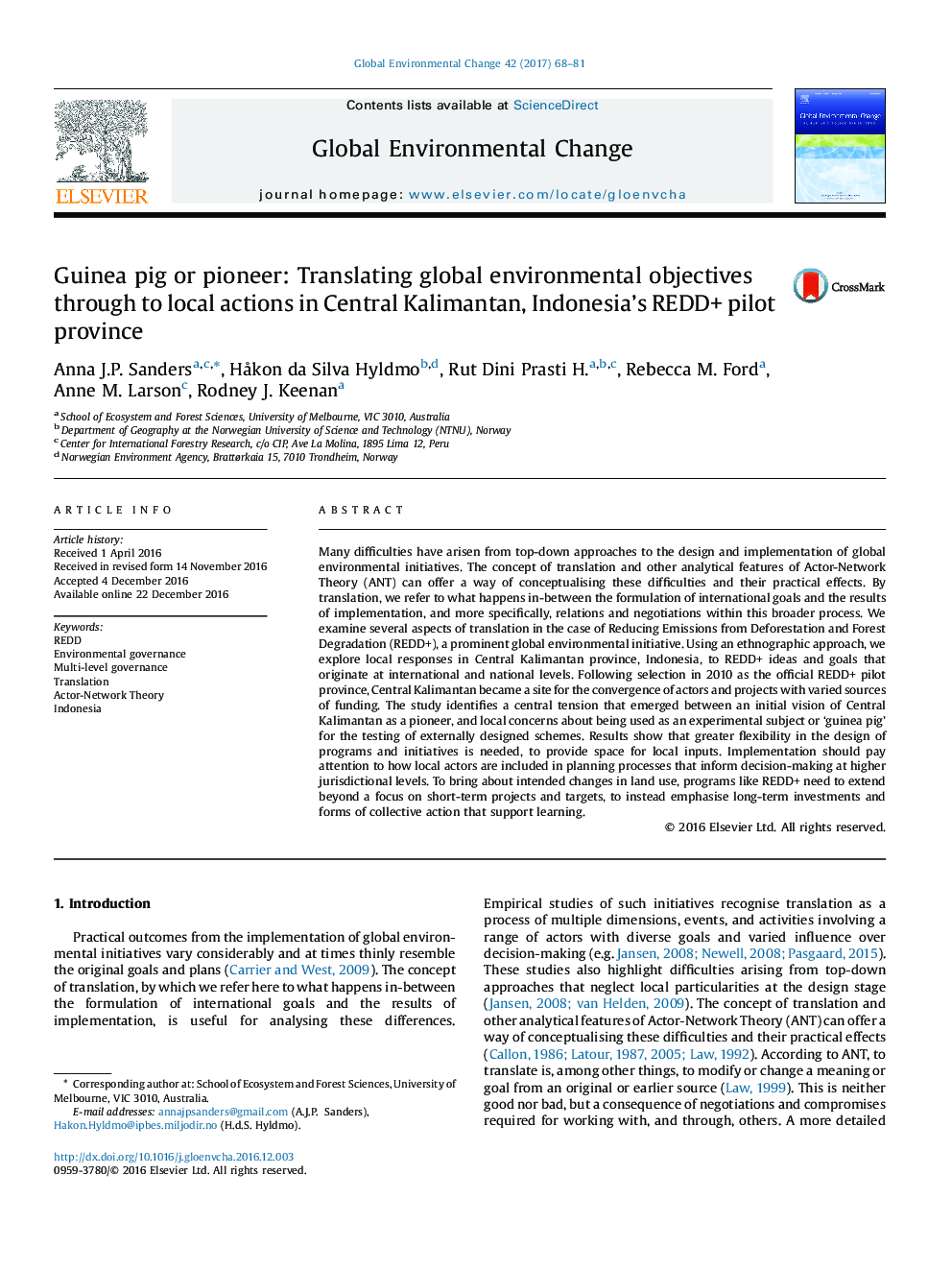| کد مقاله | کد نشریه | سال انتشار | مقاله انگلیسی | نسخه تمام متن |
|---|---|---|---|---|
| 5115979 | 1485116 | 2017 | 14 صفحه PDF | دانلود رایگان |

- REDD+ pilot projects focussed on community welfare rather than commercial land users.
- Different aspirations and competencies shaped variation in responses to REDD+.
- Local influence on the upward translation of ideas and preferences was limited.
- Narrow interpretation of rules limited the potential of multi-level collaborations.
- More flexible timeframes and approaches are needed to enable learning.
Many difficulties have arisen from top-down approaches to the design and implementation of global environmental initiatives. The concept of translation and other analytical features of Actor-Network Theory (ANT) can offer a way of conceptualising these difficulties and their practical effects. By translation, we refer to what happens in-between the formulation of international goals and the results of implementation, and more specifically, relations and negotiations within this broader process. We examine several aspects of translation in the case of Reducing Emissions from Deforestation and Forest Degradation (REDD+), a prominent global environmental initiative. Using an ethnographic approach, we explore local responses in Central Kalimantan province, Indonesia, to REDD+ ideas and goals that originate at international and national levels. Following selection in 2010 as the official REDD+ pilot province, Central Kalimantan became a site for the convergence of actors and projects with varied sources of funding. The study identifies a central tension that emerged between an initial vision of Central Kalimantan as a pioneer, and local concerns about being used as an experimental subject or 'guinea pig' for the testing of externally designed schemes. Results show that greater flexibility in the design of programs and initiatives is needed, to provide space for local inputs. Implementation should pay attention to how local actors are included in planning processes that inform decision-making at higher jurisdictional levels. To bring about intended changes in land use, programs like REDD+ need to extend beyond a focus on short-term projects and targets, to instead emphasise long-term investments and forms of collective action that support learning.
Journal: Global Environmental Change - Volume 42, January 2017, Pages 68-81